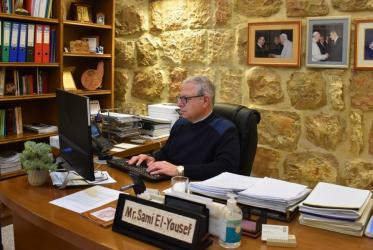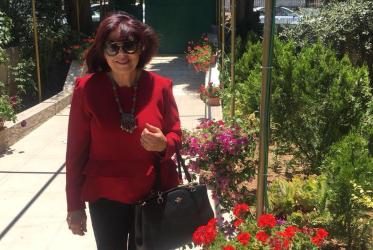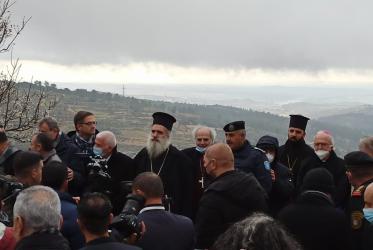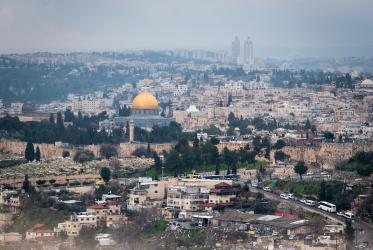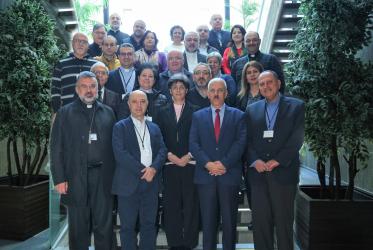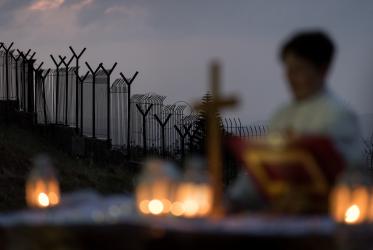Displaying 21 - 40 of 98
WCC-EAPPI Easter Initiative 2022
16 March - 17 April 2022
Planting trees and working for peace in Palestine
26 January 2022
In East Jerusalem, “we will never give up our rights”
29 October 2021
In Lebanon, “without peace there is no justice”
21 July 2021
As olive harvest draws to a close, who is helping the farmers?
08 December 2020
Fr Jamal Khader: “We need to keep hope alive” in Palestine
25 November 2020
World Week for Peace highlights humanity and equality
15 September 2019
Dr Saïd Ailabouni: God is on the side of rejected, oppressed, occupied
12 September 2019
